Viktor Frankl was a Jewish psychologist who survived the Nazi concentration camps. His book Man’s Search for Meaning is partly a memoir of his time in the camps and partly an overview of his “Third Viennese School of Psychotherapy” called logotherapy. In his formulation, the logos (λόγος) prefix does not mean “word” but “reason” or “cause.”
I’ve read the book multiple times over the years, but these were the parts that jumped out at me this time…
On despair: “[W]hen we saw a comrade smoking his own cigarettes, we knew he had given up faith in his strength to carry on, and, once lost, the will to live seldom returned.”
On rich intellectual (and spiritual) life: “Only in this way can one explain the apparent paradox that some prisoners of a less hardy make-up often seemed to survive camp life better than did those of a robust nature.”
“One could make a victory of those experiences turning life into an inner triumph, or one could ignore the challenge and simply vegetate, as did a majority of the prisoners.”
The story of “Death in Teheran”: “A rich and mighty Persian once walked in his garden with one of his servants. The servant cried that he had just encountered Death, who had threatened him. He begged his master to give him his fastest horse so that he could make haste and flee to Teheran, which he could reach that same evening. The master consented and the servant galloped off on the horse. On returning to his house the master himself met Death, and question him, ‘Why did you terrify and threaten my servant?’ ‘I did not threaten him; I only showed surprise in still finding him here when I planned to meet him tonight in Teheran, ‘ said Death.”
On Stoicism: “[T]he last of the human freedoms–to choose one’s attitude in any given set of circumstances, to choose one’s own way.”
“Fundamentally, therefore, any man can, even under such circumstances, decide what shall become of him–mentally and spiritually.”
On impending death: “A man who could not see the end of his ‘provisional existence’ was not able to aim at an ultimate goal in life.”
On looking to the future: “And this is his salvation in the most difficult moments of his existence, although he sometimes has to force his mind to the task.”
Quoting Nietzsche: “He who has a why to live for can bear with almost any how.”
On the meaning of life: “These tasks, and therefore the meaning of life, differ from man to man, and from moment to moment. Thus it is impossible to define the meaning of life in a general way. Questions about the meaning of life can never be answered by sweeping statements. ‘Life’ doe not mean something vague, but something very real and concrete, just as life’s tasks are also very real and concrete. They form man’s destiny, which is different and unique for each individual. No man and no destiny can be compared with any other man or any other destiny. No situation repeats itself, and each situation calls for a different response. Sometimes the situation in which a man finds himself may require him to shape his own fate by action. At other times it is more advantageous for him to make use of an opportunity for contemplation and to realize assets in this way. Sometimes man may be required simple to accept fate, to bear his cross. Every situation is distinguished by its uniqueness, and there is always only one right answer to the problem posed by the situation at hand.
On dignity in dying: “I said that someone looks down on each of us in different hours–a friend, a wife, somebody alive or dead, or a God–and he would not expect us to disappoint him. He would hope to find us suffering proudly–not miserably–knowing how to die.”
On meaning: “According to logotherapy this striving to find a meaning in one’s life is the primary motivational force in man. That is why I speak of a will to meaning in contrast to the pleasure principle (or, as we could also term it, the will to pleasure) on which Freudian psychoanalysis is centered, as well as in contrast to the will to power on which Adlerian psychology, using the term ‘striving for superiority,’ is focused.
On neuroses: “[S]uffering may well be a human achievement, especially if the suffering grows out of existential frustration.”
On tension: “What man actually needs is not a tensionless state but rather the striving and struggling for a worthwhile goal, a freely chosen task.”
“If architects want to strengthen a decrepit arch, they increase the load which is laid upon it, for thereby the parts are joined more firmly together.”
On responsibility: “Ultimately, man should not ask what the meaning of his life is, but rather he must recognize that it is he who is asked. In a word, each man is questioned by life; and he can only answer to life by answering for his own life; to life he an only respond by being responsible. Thus, logotherapy sees in responsibleness the very essence of human existence.”
On the “categorical imperative” of logotherapy: “Live as if you were living already for the second time and as if you had acted the first time as wrongly as you are about to act now!”
On the source of meaning: “In declaring that man is responsible and must actualize the potential menaing of his life, I wish to stress that the true meaning of life is to be discovered in the world rather than within man or his own psyche, as though it were a closed system.”
On discovering meaning: “[W]e can discover this meaning in life in three different ways: (1) by creating a work or doing a deed; (2) by experiencing something or encountering someone; and (3) by the attitude we take toward unavoidable suffering.”
On facing the inevitable: “When we are no longer able to change a situation–just think of an incurable disease such as inoperable cancer–we are challenged to change ourselves.”
On finite knowledge: “And what about man? Are you sure that the human world is a terminal point in the evolution of the cosmos? Is it not conceivable that there is still another dimension, a world beyond man’s world; a world in which the question of an ultimate meaning of human suffering would find an answer?”
On finite rationality: “What is demanded of man is not, as some existential philosophers teach, to endure the meaningless of life, but rather to bear his incapacity to grasp its unconditional meaningfulness in rational terms. Logos is deter than logic.”
On life being transitory: “[T]he transitoriness of our existence in no way makes it meaningless; for everything hinges upon our realizing the essentially transitory possibilities.”
On the “collapsed waveforms” (my term, not his) of experience: “Instead of possibilities, I have realities in my past, not only the reality of wrk done and of love loved, but of sufferings bravely suffered. These sufferings are even the things of which I am most proud, though these are thing which cannot inspire envy.”
On change: “Man does not simply exist but always decides what his existence will be, what he will become in the next moment. By the same token, every human being has the freedom to change at any instant.”
“Man is capable of changing the world for the better if possible, and of changing himself for the better if necessary.”
On decision: “A human being is not one thing among others; things determine each other, but man is ultimately self-determining. What he becomes–within the limits of endowment and environment–he has made out of himself. In the concentration amps, for example, in this living laboratory and on his testing ground, we watched and witnessed some of our comrades behave like swine while others behaved like saints. Man has both potentialities within himself; which one is actualized depends on decisions but not on conditions.”
On logotherapy’s “tragic triad” of pain, guilt, and death: “[I] speak of tragic optimism, that is, an optimism in the face of tragedy and in view of the human potential which at the best always allows for: (1) turning suffering into a human achievement and accomplishment; (2) deriving from guilt the opportunity to change oneself for the better; and (3) deriving from life’s transitoriness an incentive to take responsible action.”
On death: “Doesn’t the final meaning of life, too, reveal itself, if at all, only at its end, on the verge of death?”
Finally, ominously: “Since Auschwitz we know what man is capable of. And since Hiroshima we know what is at stake.”

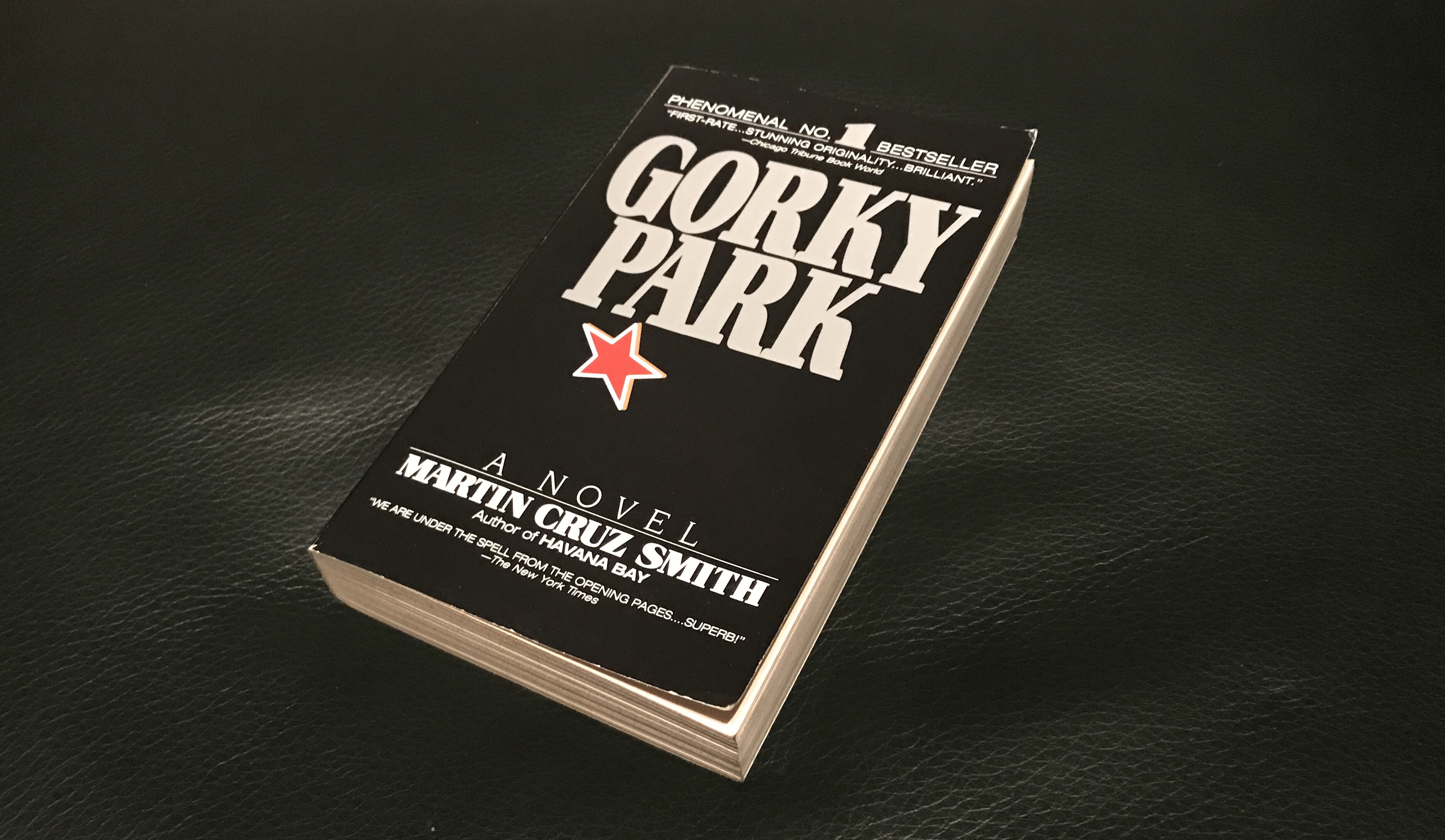 Several lifetimes ago, I was at a gathering of people from Bel Air Presbyterian Church at a wealthy couple’s home. I believe the husband was a lawyer of some kind, but the most distinctive thing about him were his suspenders. I was admiring their floor-to-ceiling wooden bookcases and then he & I started chatting about Raymond Chandler and Dashiell Hammett. He asked if I had read
Several lifetimes ago, I was at a gathering of people from Bel Air Presbyterian Church at a wealthy couple’s home. I believe the husband was a lawyer of some kind, but the most distinctive thing about him were his suspenders. I was admiring their floor-to-ceiling wooden bookcases and then he & I started chatting about Raymond Chandler and Dashiell Hammett. He asked if I had read 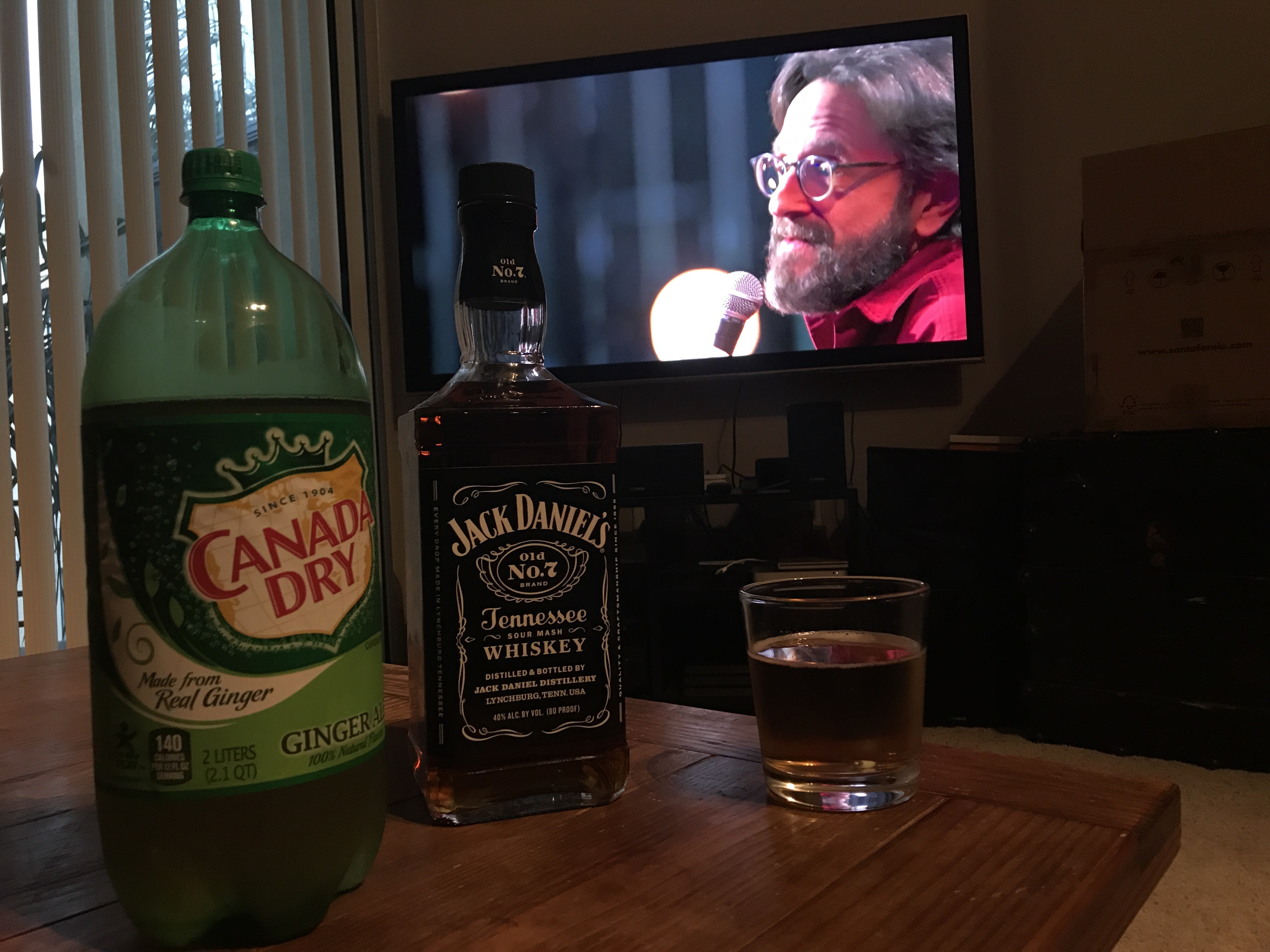 My definition of self-care — Jack & Ginger, pepperoni & bacon pizza, and Marc Maron’s new Netflix special “
My definition of self-care — Jack & Ginger, pepperoni & bacon pizza, and Marc Maron’s new Netflix special “ Sorting through an old trunk, I stumbled on my high school prom photo.
Sorting through an old trunk, I stumbled on my high school prom photo. I took a quiet route back through western Nevada. Nevada State 359 took me to a quiet crossing into California where California State 167 brought me north around Mono Lake.
I took a quiet route back through western Nevada. Nevada State 359 took me to a quiet crossing into California where California State 167 brought me north around Mono Lake.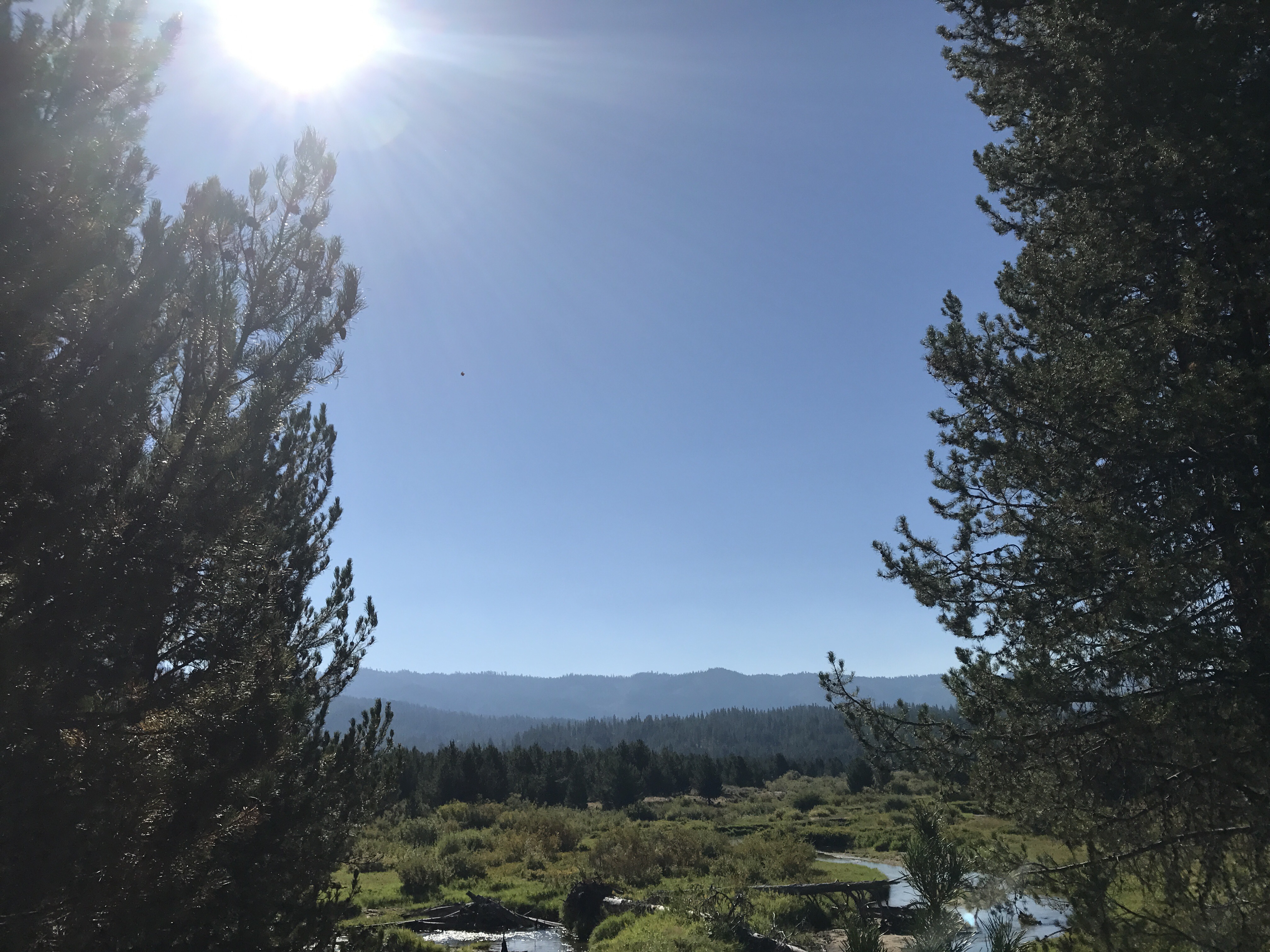 On the day of the solar eclipse, I left at 6am and drove north from Boise up the 55 and past Cascade Lake, passing the huge crowds parking in any open fields. I headed east, taking a sleepy backroad into the Boise National Forest. I found a quiet turnout with no one around in either direction.
On the day of the solar eclipse, I left at 6am and drove north from Boise up the 55 and past Cascade Lake, passing the huge crowds parking in any open fields. I headed east, taking a sleepy backroad into the Boise National Forest. I found a quiet turnout with no one around in either direction. Pine trees, a lazy stream, forest and mountains in the distance.
Pine trees, a lazy stream, forest and mountains in the distance. Still
Still 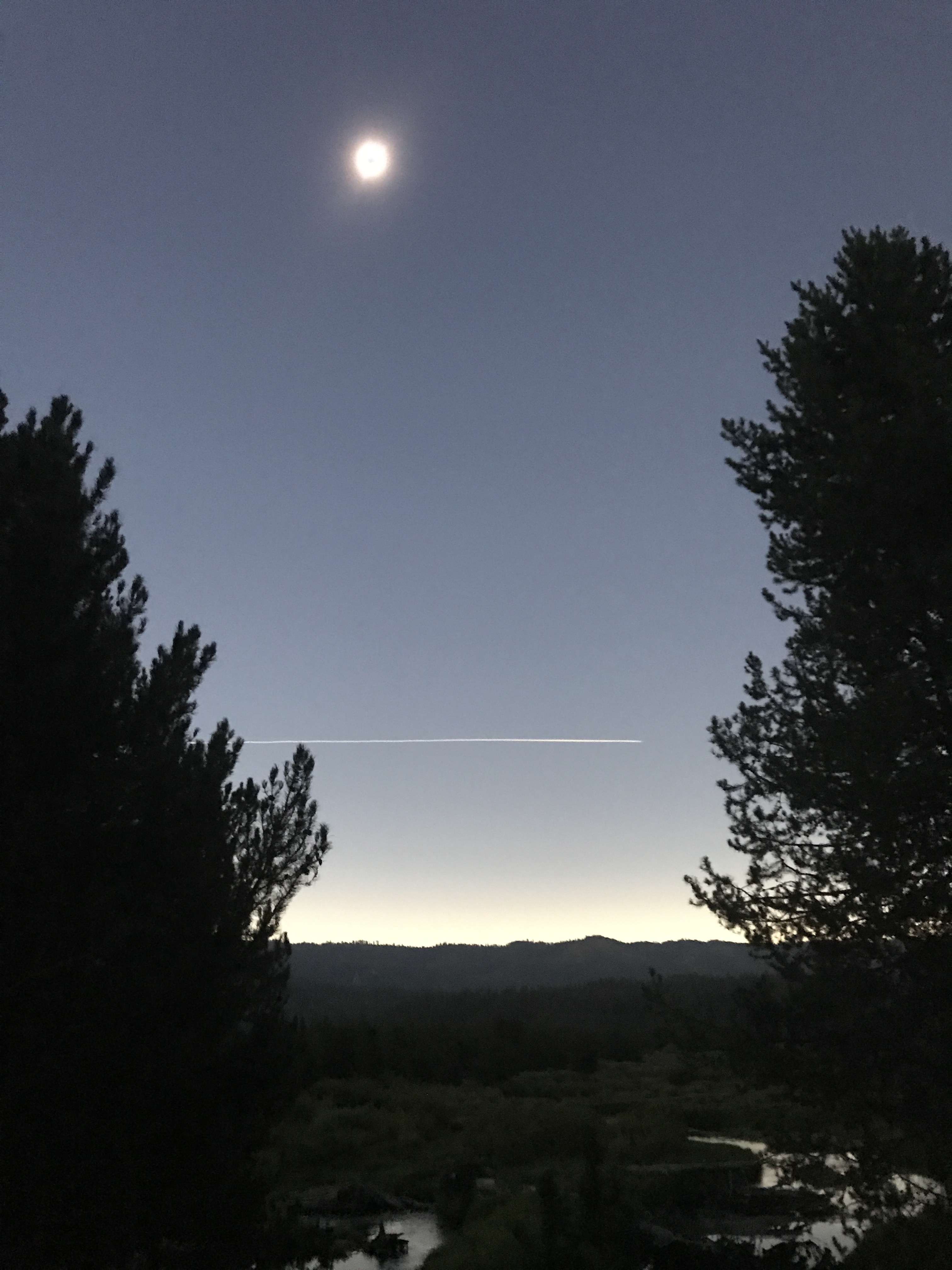 I don’t know what I was expecting. I had been so sick, I had almost aborted my trip so many times and turned back. But then it happened. It looked exactly like eclipses do in textbooks, but there’s something visceral about seeing a black hole punched through the fucking sky. Something that has been a constant for your entire life suddenly gone. No wonder the ancients were terrified. A hush settles as nature notices the abrupt arrival of dusk.
I don’t know what I was expecting. I had been so sick, I had almost aborted my trip so many times and turned back. But then it happened. It looked exactly like eclipses do in textbooks, but there’s something visceral about seeing a black hole punched through the fucking sky. Something that has been a constant for your entire life suddenly gone. No wonder the ancients were terrified. A hush settles as nature notices the abrupt arrival of dusk.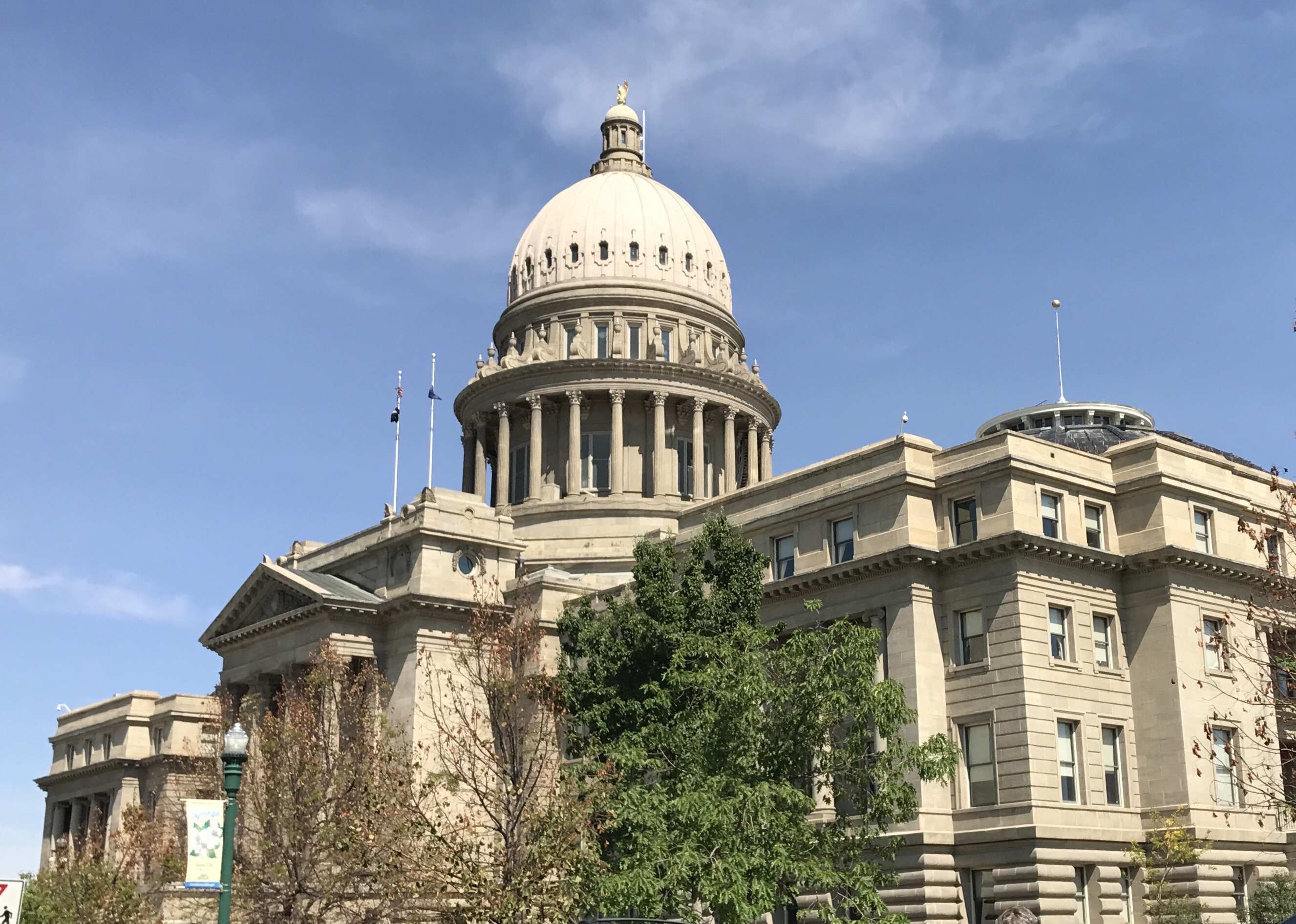 David Lawrence Young, Jr. (my grandfather) was born in Boise, ID. I drove around a bit and found the state capitol building. According to
David Lawrence Young, Jr. (my grandfather) was born in Boise, ID. I drove around a bit and found the state capitol building. According to